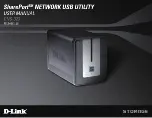
M
management network
A network that is primarily responsible for booting and installing the designated server and compute
nodes from the management server.
management server (MS)
An ESS node that hosts the ESS GUI and xCAT and is not connected to storage. It must be part of a
GPFS cluster. From a system management perspective, it is the central coordinator of the cluster. It
also serves as a client node in an ESS building block.
master encryption key (MEK)
A key that is used to encrypt other keys. See also encryption key.
maximum transmission unit (MTU)
The largest packet or frame, specified in octets (eight-bit bytes), that can be sent in a packet- or
frame-based network, such as the Internet. The TCP uses the MTU to determine the maximum size of
each packet in any transmission.
MEK
See master encryption key (MEK).
metadata
A data structure that contains access information about file data. Such structures include inodes,
indirect blocks, and directories. These data structures are not accessible to user applications.
MS
See management server (MS).
MTU
See maximum transmission unit (MTU).
N
Network File System (NFS)
A protocol (developed by Sun Microsystems, Incorporated) that allows any host in a network to gain
access to another host or netgroup and their file directories.
Network Shared Disk (NSD)
A component for cluster-wide disk naming and access.
NSD volume ID
A unique 16-digit hexadecimal number that is used to identify and access all NSDs.
node
An individual operating-system image within a cluster. Depending on the way in which the computer
system is partitioned, it can contain one or more nodes. In a Power Systems environment,
synonymous with logical partition.
node descriptor
A definition that indicates how ESS uses a node. Possible functions include: manager node, client
node, quorum node, and non-quorum node.
node number
A number that is generated and maintained by ESS as the cluster is created, and as nodes are added
to or deleted from the cluster.
node quorum
The minimum number of nodes that must be running in order for the daemon to start.
node quorum with tiebreaker disks
A form of quorum that allows ESS to run with as little as one quorum node available, as long as there
is access to a majority of the quorum disks.
non-quorum node
A node in a cluster that is not counted for the purposes of quorum determination.
Glossary 59
Summary of Contents for Elastic Storage System 3000
Page 1: ...IBM Elastic Storage System 3000 Version 6 0 1 Service Guide IBM SC28 3158 00...
Page 4: ...Index 63 iv...
Page 6: ...vi...
Page 8: ...viii...
Page 12: ...xii IBM Elastic Storage System 3000 Service Guide...
Page 30: ...18 IBM Elastic Storage System 3000 Service Guide...
Page 58: ...46 IBM Elastic Storage System 3000 Service Guide...
Page 64: ...52 IBM Elastic Storage System 3000 Service Guide...
Page 74: ...62 IBM Elastic Storage System 3000 Service Guide...
Page 76: ...64 IBM Elastic Storage System 3000 Service Guide...
Page 78: ...66 IBM Elastic Storage System 3000 Service Guide...
Page 79: ......
Page 80: ...IBM Product Number 5765 DME 5765 DAE SC28 3158 00...










































